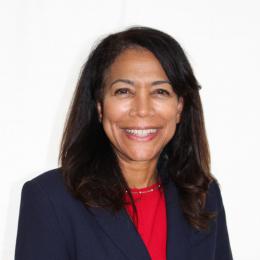Historically, in-house counsel's efforts toward diversity, equity, and inclusion (DEI) have been focused primarily in three areas:
- The make-up of our company;
- The composition of our outside counsel teams; and
- The legal profession at large, from law schools, law firms, to our judiciary.
These are all important spaces, and there is an imperative call for DEI in each.
But why stop here? If all the whys of diversity, equity, inclusion, and belonging ring true, then there is a moral justification, a business justification, and significant value in having diverse representation.
So, why haven’t we looked beyond what’s right in front of us?
Look to your suppliers
In all fairness, some companies have looked beyond these spaces, and have done so for a long time. For example, Toyota has been committed for over 30 years to building a more inclusive supplier base that not only reflects the diversity of its team members and customers, but also the communities it serves.
Toyota initiatives
- Hosting supplier development conferences with networking, educational sessions, and professional development sessions, where certified diverse companies are invited to attend free of charge;
- Intentionally increasing opportunities for women and minority-owned dealers; and
- Spending at least US$1 billion with minority and women-owned suppliers annually.
But what about our own “supply chain” as in-house counsel and legal departments? How can we take what we learn from our business clients and incorporate that into our world?
Beyond the law firms we use as outside counsel, there are myriad of services we touch and can influence, from investigators, mediators, arbitrators, expert witnesses, consultants, deposition services, translation services, and the huge legal technology industry — just to name a few.
Shouldn’t our intentionality and allyship also apply to these often-forgotten partners? Certainly, when we stop to think about it, our “legal” industry is more expansive than we may realize.
What could this look like? If the whys are the same, then let’s address the next barrier which is usually the how.
Start small
As we have previously advocated, there’s no need to go big or go home. Rather, start small.
Make a list
Begin by creating a list of traditionally underrepresented direct suppliers you use, such as investigators or mediators. Reach out to your network of other in-house counsel or your outside law firms for referrals and recommendations. Your local bar association may keep a list as well.
Having a list ready makes it easier when the time comes to retain someone. Don’t forget to consult this list a part of your standard operating procedure.
Network
For those vendors you do not hire directly but could influence, such as expert witnesses, deposition services, or eDiscovery vendors, reach out to the decision-makers — whether that is your legal operations department or your outside counsel. Have those conversations to see if you can get some buy-in and make the ask for diverse representation, and of course, follow up.
Celebrate
When you do work with someone exceptional, take a moment to sing their praises to your colleagues, on LinkedIn, or with your in-house network. Help them by increasing the likelihood that they will grow their business.
Share
Spread this message. Encourage other in-house counsel to consider expanding their reach and influence when it comes to diversity, equity, and inclusion in these spaces.
When we realize that we can expand our call for diversity, equity, and inclusion to our companies’ suppliers, vendors, and legal services, our ability to make positive change expands significantly.
It just takes a bit of intentionality and small actions.
DEI, Esq. is comprised of in-house counsel who share a deep passion for diversity, equity, and inclusion. While the members, Jane Howard-Martin, Connie Almond, Olesja Cormney, Jennifer N. Jones, and Meyling Ly Ortiz, work as employment counsel at Toyota Motor North America, Inc., their views and the thought-leadership expressed are their own and not necessarily the views of their employer.








